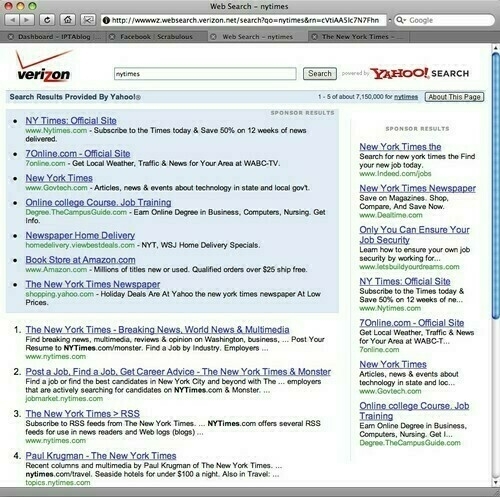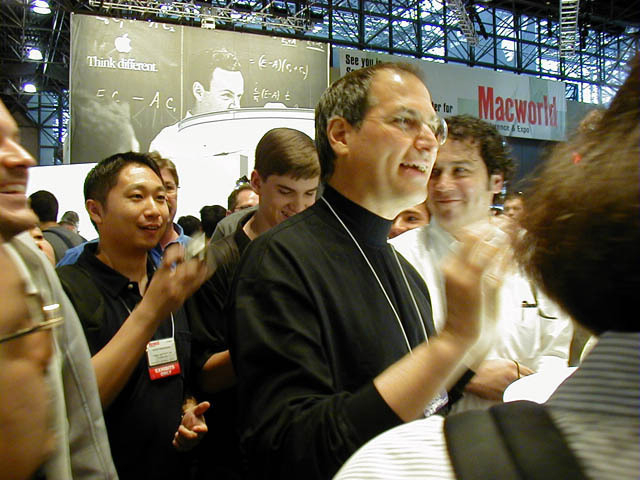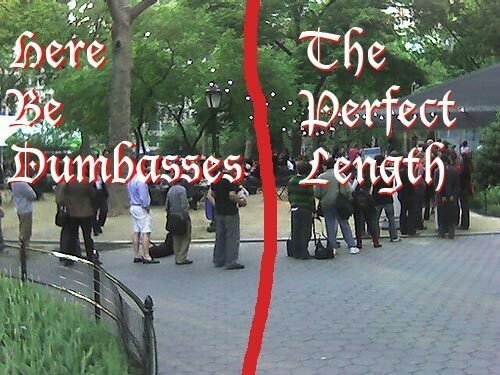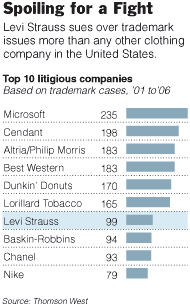The Second Circuit Court of Appeals ruled that the Federal Communications Commission’s policy prohibiting “fleeting expletives” is arbitrary and capricious under the Administrative Procedure Act for “failing to articulate a reasoned basis for its change in policy.” Fox v. FCC, 06-1760 (2d Cir., Jun. 4, 2007).
“The Networks contend that the Remand Order is arbitrary and capricious because the FCC has made a 180-degree turn regarding its treatment of “fleeting expletives” without providing a reasoned explanation justifying the about-face. We agree.”
The evaluation of the Commission’s new policy is limited to the reasons articulated by the agency itself, particularly the “first blow” theory introduced in [Pacifica][2]. Based on the pervasiveness of the broadcast medium, a viewer or listener can not opt-out of indecent programming when encountering such programming in the spectrum, and so the audience must bear the “first blow” of encountering indecent speech. Because of this unique pervasiveness, the Commission changed its standards in order to be able to sanction fleeting and accidental indecency.
“We cannot accept [the “first blow” argument] as a reasoned basis justifying the Commission’s new rule. First, the Commission provides no reasonable explanation for why it has changed its perception that a fleeting expletive was not a harmful “first blow” for the nearly thirty years between Pacifica and Golden Globes. More problematic, however, is that the “first blow” theory bears no rational connection to the Commission’s actual policy regarding fleeting expletives. As the FCC itself stressed during oral argument in this case, the Commission does not take the position that any occurrence of an expletive is indecent or profane under its rules. For example, although “there is no outright news exemption from our indecency rules,” Remand Order, at ¶ 71, the Commission will apparently excuse an expletive when it occurs during a “bona fide news interview,” id. at ¶ 72-73 (deferring to CBS’s “plausible characterization” of a segment of The Early Show interviewing a contestant on its reality show Survivor: Vanuatu as news programming and finding expletive uttered during that part of the show not indecent or profane).
The Commission even conceded that a re-broadcast of precisely the same offending clips from the two Billboard Music Award programs for the purpose of providing background information on this case would not result in any action by the FCC, even though in those circumstances viewers would be subjected to the same “first blow”
that resulted from the original airing of this material. Furthermore, the Commission has also held that even repeated and deliberate use of numerous expletives is not indecent or profane under the FCC’s policy if the expletives are “integral” to the work.
The court finds that other justifications for the new indecency standard advanced by the FCC do not pass the threshold of being arbitrary and capricious:
The Remand Order makes passing reference to other reasons that purportedly support its change in policy, none of which we find sufficient. For instance, the Commission states that even non-literal uses of expletives fall within its indecency definition because it is “difficult (if not impossible) to distinguish whether a word is being used as an expletive or as a literal description of sexual or excretory functions.” Remand Order, at ¶ 23. This defies any common-sense understanding of these words, which, as the general public well knows, are often used in everyday conversation without any “sexual or excretory” meaning. Bono’s exclamation that his victory at the Golden Globe Awards was “really, really fucking brilliant” is a prime example of a non-literal use of the “F-Word” that has no sexual connotation. See Golden Globes (Bureau Decision), 18 F.C.C.R. 19859, at ¶ 5 (“As a threshold matter, the material aired during the ‘Golden Globe Awards’ program does not describe or depict sexual and excretory activities and organs . . . . Rather, the performer used the word ‘fucking’ as an adjective or expletive to emphasize an exclamation.”), rev’d by Golden Globes, 19 F.C.C.R. 4975 (2004). Similarly, as NBC illustrates in its brief, in recent times even the top leaders of our government have used variants of these expletives in a manner that no reasonable person would believe referenced “sexual or excretory organs or activities.” See Br. of Intervenor NBC at 31-32 & n.3 (citing President Bush’s remark to British Prime Minister Tony Blair that the United Nations needed to “get Syria to get Hezbollah to stop doing this shit” and Vice President Cheney’s widely-reported “Fuck yourself” comment to Senator Patrick Leahy on the floor of the U.S. Senate).
To change a long-standing policy without new legislation, must an agency show empirical evidence establishing the need for such a change?
For decades broadcasters relied on the FCC’s restrained approach to indecency regulation and its consistent rejection of arguments that isolated expletives were indecent. The agency asserts the same interest in protecting children as it asserted thirty years ago, but until the Golden Globes decision, it had never banned fleeting expletives. While the FCC is free to change its previously settled view on this issue, it must provide a reasoned basis for that change.
The court finds that the Commission’s new approach towards regulating profanity is more arbitrary and capricious than the new approach towards regulating indecency.
The Commission’s new approach to profanity is supported by even less analysis, reasoned or not. The Commission sets forth no independent reasons that would justify its newly-expanded definition of “profane” speech, aside from merely stating that its prior precedent does not prevent it from setting forth a new definition, see Golden Globes, 19 F.C.C.R. 4975, at ¶ 14. To the extent the Commission believes its arguments for expanding its indecency enforcement support its new policy regarding profanity, those arguments are rejected for the reasons stated above. Furthermore, the Commission fails to provide any explanation for why this separate ban on profanity is even necessary. Prior to 2004, the Commission never attempted to regulate “profane” speech. In fact, the Commission took the view that a separate ban on profane speech was unconstitutional. See 122 Cong. Rec. 33359, 33359, 33364-65 (1976) (recommending Congress delete “profane” from Section 1464 “[b]ecause of the serious constitutional problems involved”); FCC, The Public and Broadcasting, 1999 WL 391297 (June 1999) (“Profanity that does not fall under one of the above two categories [indecent or obscene] is fully protected by the First Amendment and cannot be regulated.”). The Commission again has not provided this court with a reasoned analysis of why it has undertaken this separate regulation of speech. Finally, the Commission provides no explanation of what harm this separate enforcement against profane speech addresses that is not already addressed by the FCC’s indecency and obscenity enforcement. Particularly considering that the scope of the FCC’s new profanity definition appears to be largely (if not completely) redundant with its indecency prohibition, this would seem to be an important question for the Commission to consider. The Remand Order, however, provides no indication that the Commission has engaged in any such analysis.
While the court does not the case based on First Amendment grounds, it does pointedly question whether this standard of indecency regulation is Constitutional. The court remands to the FCC for a reasoned explanation for the “fleeting expletive” regime and is skeptical that the Commission can provide such a reasoned explanation.
As an initial matter, we note that all speech covered by the FCC’s indecency policy is fully protected by the First Amendment.
With that backdrop in mind, we question whether the FCC’s indecency test can survive First Amendment scrutiny. For instance, we are sympathetic to the Networks’ contention that the FCC’s indecency test is undefined, indiscernible, inconsistent, and consequently, unconstitutionally vague. Although the Commission has declared that all variants of “fuck” and “shit” are presumptively indecent and profane, repeated use of those words in “Saving Private Ryan,” for example, was neither indecent nor profane. And while multiple occurrences of expletives in “Saving Private Ryan” was not gratuitous, a single occurrence of “fucking” in the Golden Globe Awards was “shocking and gratuitous.”
We can understand why the Networks argue that FCC’s “patently offensive as measured by contemporary community standards” indecency test coupled with its “artistic necessity” exception fails to provide the clarity required by the Constitution, creates an undue chilling effect on free speech, and requires broadcasters to “steer far wider of the unlawful zone.”
The court goes on to discuss the Supreme Court’s strikedown of internet indecency regulation in [Reno v. ACLU][3] and notes that the internet regulations which were struck down used language “substantially similar” to that in the FCC indecency test.
We also note that the FCC’s indecency test raises the separate constitutional question of whether it permits the FCC to sanction speech based on its subjective view of the merit of that speech. It appears that under the FCC’s current indecency regime, any and all uses of an expletive is presumptively indecent and profane with the broadcaster then having to demonstrate to the satisfaction of the Commission, under an unidentified burden of proof, that the expletives were “integral” to the work.
New technology [may make indecency regulations obsolete][4]. The court suggests that such new technology make subject regulations of broadcast speech to review under strict scrutiny.
We would be remiss not to observe that it is increasingly difficult to describe the broadcast media as uniquely pervasive and uniquely accessible to children, and at some point in the future, strict scrutiny may properly apply in the context of regulating broadcast television.
The proliferation of satellite and cable television channels—not to mention internet-based video outlets—has begun to erode the “uniqueness” of broadcast media, while at
the same time, blocking technologies such as the V-chip have empowered viewers to make their own choices about what they do, and do not, want to see on television.
The FCC is free to regulate indecency, but its regulatory powers are bounded by the Constitution. If the Playboy decision is any guide, technological advances may obviate the constitutional legitimacy of the FCC’s robust oversight.
Besides changing the standard for enforcement, the Commission essentially crafted an entirely new definition for “profane” without direction from Congress.
Most dictionaries interpret the term “profane” to denote something that pertains to the irreligious, and since 1927, courts—as well as the FCC itself—have assumed that “profane” in the broadcast context refers to sacrilege, and nothing more.
But the FCC’s definition of “profane” here, would substantially overlap with the statutory term “indecent.” This overlap would be so extensive as to render the statutory term “indecent” superfluous. Because our canons of statutory construction do not permit such an interpretation, see TRW Inc. v. Andrews, 534 U.S. 19, 31 (2001), we do not believe the FCC has proffered a reasonable construction of the term “profane.” While we may owe Chevron deference to the FCC’s construction, the FCC must still demonstrate that its construction is reasonable, particularly in light of Congressional intent, the canons of statutory construction, and the historical view of the plain meaning of this term.
While the court is skeptical that broadcast indecency regulation can survive First Amendment scrutiny, it does give the Commission the chance to advance that argument, by ruling on only the administrative law grounds.
As the foregoing indicates, we are doubtful that by merely proffering a reasoned analysis for its new approach to indecency and profanity, the Commission can adequately respond to the constitutional and statutory challenges raised by the Networks. Nevertheless, because we can decide this case on this narrow ground, we vacate and remand so that the Commission can set forth that analysis. While we fully expect the Networks to raise the same arguments they have raised to this court if the Commission does nothing more on remand than provide additional explanation for its departure from prior precedent, we can go no further in this opinion.
In dissent, Judge Leval finds that the “the Commission gave a sensible, although not necessarily compelling, reason,” which deserves deference.
[The FCC] made clear acknowledgment that its Golden Globes and Remand Order rulings were not consistent with its prior standard regarding lack of repetition. It announced the adoption of a new standard. And it furnished a reasoned explanation for the change. Although one can reasonably disagree with the Commission’s new position, its explanation – at least with respect to the F-Word – is not irrational, arbitrary, or capricious. The Commission thus satisfied the standards of the Administrative Procedures Act.
The dissent also discusses the various uses of the word “fuck”
The majority notes that the F-Word is often used in everyday conversation without any sexual meaning.… I agree with the majority that the word is often used without a necessary intention on the part of the speaker to refer to sex. A student who gets a disappointing grade on a test, a cook who burns the roast, or a driver who returns to his parked car to find a parking ticket on the windshield, might holler out the F-Word to express anger or disappointment. The word is also sometimes used to express delight, as with Bono’s exhilarated utterance on his receipt of his award. Some use it more as a declaration of uncompromising toughness, or of alignment on the side of vulgarity against prissy manners, without necessarily intending to evoke any sexual meaning. Some use it to intensify whatever it is they may be saying, and some sprinkle the word indiscriminately throughout their conversation with no apparent meaning whatsoever.
In a footnote, the dissent notes that the court is only reviewing cases dealing with use of the word “fuck,” not cases concerning the word “shit.” Were this court testing the Commissions standard for uses of the s-word on television, might the result be different?
“For children, excrement is a main preoccupation of their early years. There is surely no thought that children are harmed by hearing references to excrement.… When the censorship is exercised only to protect polite manners and not by reason of risk of harm, I question whether it can survive scrutiny. Because each instance of censorship at stake in this case involved the F-Word, which in the Commission’s view inherently retains a sexual reference, the question does not arise in this case.”
News and Analysis Links:
David Oxenford, Broadcast Law Blog, [Second Circuit Throws Out FCC Indecency Fines][5]: “While the Court’s decision was based on the FCC’s failure to provide a rational basis for its departure from precedent, the Court also said that it was difficult to imagine how the FCC could constitutionally justify its actions. The Court pointed to the inconsistent decisions of the FCC – fining stations for the use of the “F-word” and the “S-word” in isolated utterances during awards shows, and when used in the context of a program like PBS’ The Blues, but finding that the same words were not actionable when used in Saving Private Ryan or when used by a Survivor contestant interviewed on CBS’ morning show.”
Brooks Boliek, The Hollywood Reporter, Esq. [2nd Cir. Tosses Key FCC Indecency Ruling][6]: “The U.S. 2nd Circuit Court of Appeals in New York on Monday tossed out a key FCC ruling that said a slip of the tongue gets broadcasters a fine for indecency, telling the commission that it failed to give a good reason for its decision and couldn’t likely find a good reason if it had to.”
Frank Ahrens, The Washington Post, [Broadcasters Win Appeal Of FCC’s Profanity Ruling][7]: “The ruling is a rebuke to the FCC and a victory for television networks, which in recent years have pushed back against the FCC’s crackdown on indecency. In 2004, the agency reversed years of policy and effectively branded even “fleeting,” or one-time, use of an expletive off-limits on broadcast television and radio, angering Hollywood, which warned of a chilling effect on programming.”
Jim Puzzanghera, The LA Times, [FCC efforts on indecency dealt setback][8]: “In a victory for TV networks but a setback for efforts to shield children from coarse language, a federal court ruled Monday that broadcasters couldn’t be penalized for expletives that were considered impromptu.”
Stephen Labaton, The New York Times, [Court Rebuffs F.C.C. on Fines for Indecency][9]: “If President Bush and Vice President Cheney can blurt out vulgar language, then the government cannot punish broadcast television stations for broadcasting the same words in similarly fleeting contexts.”
Advocacy Group Statements:
[Media Access Project][10]: “Score one for the First Amendment. It’s a shame that citizens and broadcasters had to seek protection from the courts, but it is very reassuring to know that one branch of the government can rise above demagogy.”
[Parents Television Counsel][11]: “As we predicted several months ago, a court in New York City has cleared the way for television networks to use the F-word and S-word in front of children at any time of the day. By a mere 2-1 margin, the Second Circuit Court of Appeals has, in essence, stolen the airwaves from the public and handed ownership over to the broadcast industry.”
Chairman [Martin][12] and Commissioner [Copps][13] are both disappointed with the court’s decision.
[2]: 438 U.S. 726
[3]: http://www.law.cornell.edu/supct/html/96-511.ZO.html
[4]: http://www.iptablog.org/2006/03/28/are_indecency_regulations_obsolete.html
[5]: http://www.broadcastlawblog.com/archives/indecency-second-circuit-throws-out-fcc-indecency-fines.html
[6]: http://www.hollywoodreporteresq.com/thresq/government/article_display.jsp?vnu_content_id=1003593670&imw=Y
[7]: http://www.washingtonpost.com/wp-dyn/content/article/2007/06/04/AR2007060400875.html?hpid=topnews
[8]: http://www.latimes.com/business/la-fi-fcc5jun05,0,797754.story?coll=la-tot-business&track=ntothtml
[9]: http://www.nytimes.com/2007/06/05/business/media/05decency.html?ex=1338696000&en=d31a8dc18de0d90a&ei=5090&partner=rssuserland&emc=rss
[10]: http://www.mediaaccess.org/press/Indecency0604.pdf
[11]: http://www.parentstv.org/PTC/publications/release/2007/0604.asp
[12]: http://hraunfoss.fcc.gov/edocs_public/attachmatch/DOC-273602A1.pdf
[13]: http://hraunfoss.fcc.gov/edocs_public/attachmatch/DOC-273599A1.pdf





